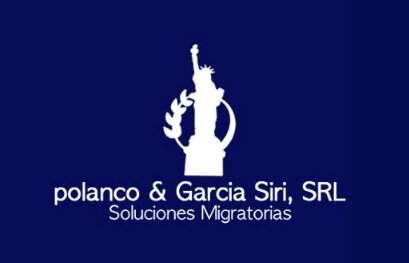Best Work Permit Lawyers in Santiago de los Caballeros
Share your needs with us, get contacted by law firms.
Free. Takes 2 min.
List of the best lawyers in Santiago de los Caballeros, Dominican Republic
About Work Permit Law in Santiago de los Caballeros, Dominican Republic
A work permit is a legal authorization that allows a foreign national to work in the Dominican Republic. In Santiago de los Caballeros, as in other parts of the country, strict regulations govern who can work, under what conditions, and for how long. The process typically involves the Ministry of Labor and the General Directorate of Migration. Obtaining a work permit is crucial for foreigners who wish to work legally in the country, whether as employees, contractors, or business owners. Failure to obtain the correct work permit can result in fines, deportation, or other legal consequences.
Why You May Need a Lawyer
While some people navigate the work permit process on their own, hiring a lawyer is often highly recommended in Santiago de los Caballeros. Common situations where legal help is beneficial include:
- Understanding the type of work permit suitable for your employment situation
- Preparing and submitting the required documentation correctly
- Resolving complications with incomplete or expired permits
- Appealing denied applications
- Employer-employee disputes regarding immigration status
- Ensuring compliance with local labor laws
- Dealing with government authorities on your behalf
A lawyer can help streamline the process, prevent costly mistakes, and ensure that all your actions are compliant with Dominican law.
Local Laws Overview
Work permit regulations in Santiago de los Caballeros are governed by national Dominican laws but enforced locally. Key aspects include:
- The General Migration Law (Ley General de Migración, Ley 285-04) outlines who must obtain a work permit and the application process
- Work permits are typically granted to individuals who have a valid job offer from a local employer
- Permits must be renewed periodically and are often tied to the duration of the employment contract
- Employers must demonstrate that no qualified Dominican citizen is available for the position before hiring a foreign national
- Foreigners working without a permit may face deportation, fines, and restrictions on future entries to the country
- Employers found hiring foreigners illegally may also face penalties
Staying up-to-date with local regulations is essential, as laws and requirements can change.
Frequently Asked Questions
What is a work permit in the Dominican Republic?
A work permit is a legal authorization that permits a foreign national to be employed in the country. It is issued by the General Directorate of Migration in cooperation with the Ministry of Labor.
Who needs a work permit?
Any foreigner who wishes to engage in paid employment or business activities in Santiago de los Caballeros or elsewhere in the Dominican Republic needs a valid work permit.
How do I apply for a work permit?
You must first secure a job offer from an employer in the Dominican Republic. Then, together with your employer, you must submit the necessary application forms, identification documents, and supporting evidence to the appropriate authorities.
How long does it take to get a work permit?
Processing times can vary but typically take from a few weeks to several months depending on the completeness of your documents and any backlogs at government offices.
Can my family accompany me if I get a work permit?
Yes, in many cases, dependents such as a spouse or children can apply to join you, though they may need to apply for separate residency or permit status.
What happens if I work without a permit?
Working without a valid permit is illegal and can result in fines, deportation, and a ban from re-entering the Dominican Republic.
Do I need to renew my work permit?
Yes, work permits are not indefinite. You must renew your permit regularly, usually in line with the duration of your employment contract.
What documents are required for the application?
Typical requirements include a valid passport, job offer or employment contract, police clearance from your country of origin, medical certificate, proof of no criminal record, and passport-sized photos. The exact list may vary.
Can I change employers with an existing work permit?
Work permits are generally issued for specific positions or employers. If you want to change jobs, you may need to apply for a new permit or update your existing one with the authorities.
What should I do if my application is denied?
You have the right to appeal the decision or address the reasons for denial. It is advisable to seek help from a qualified immigration lawyer if your application is unsuccessful.
Additional Resources
For those seeking more information or legal advice regarding work permits in Santiago de los Caballeros, these resources may be helpful:
- General Directorate of Migration (Dirección General de Migración) - Handles immigration status, permit applications, and renewals
- Ministry of Labor (Ministerio de Trabajo) - Provides information on labor laws and regulations for local employment
- Association of Lawyers of Santiago - Can help locate experienced immigration and employment lawyers in the region
- Consulates and embassies - Foreign nationals may receive guidance or document assistance through their own country’s embassy or consulate
- Local legal aid organizations - Sometimes offer support for basic legal queries or documentation reviews
Next Steps
If you need legal assistance with a work permit in Santiago de los Caballeros, start by gathering all relevant documents including your passport, job offer, and any correspondence with authorities. Research local lawyers with experience in immigration and labor law. Schedule a consultation to discuss your situation, possible complications, and next steps. Acting early and working with a professional can make the process much smoother and help prevent common pitfalls. Stay informed, keep your documentation updated, and don’t hesitate to ask questions to ensure your employment in the Dominican Republic is fully legal.
Lawzana helps you find the best lawyers and law firms in Santiago de los Caballeros through a curated and pre-screened list of qualified legal professionals. Our platform offers rankings and detailed profiles of attorneys and law firms, allowing you to compare based on practice areas, including Work Permit, experience, and client feedback.
Each profile includes a description of the firm's areas of practice, client reviews, team members and partners, year of establishment, spoken languages, office locations, contact information, social media presence, and any published articles or resources. Most firms on our platform speak English and are experienced in both local and international legal matters.
Get a quote from top-rated law firms in Santiago de los Caballeros, Dominican Republic — quickly, securely, and without unnecessary hassle.
Disclaimer:
The information provided on this page is for general informational purposes only and does not constitute legal advice. While we strive to ensure the accuracy and relevance of the content, legal information may change over time, and interpretations of the law can vary. You should always consult with a qualified legal professional for advice specific to your situation.
We disclaim all liability for actions taken or not taken based on the content of this page. If you believe any information is incorrect or outdated, please contact us, and we will review and update it where appropriate.
















